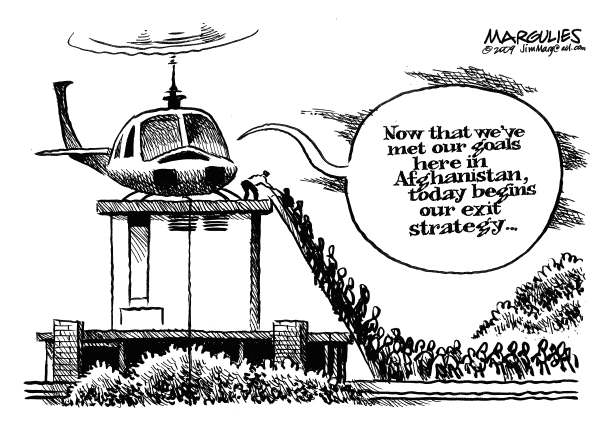Search
Democracy Links
Member's Off-site Blogs
lessons of war .....

With tens of thousands killed and millions of lives destroyed by nearly twelve years of US war in Afghanistan, there is no possible number that accurately reflects the carnage
Citing the broad aversion among U.S. media outlets, politicians, and the American public at large to grapple with the untold amount of death and human destruction suffered by the civilian population of Afghanistan after almost 12 years of U.S.-waged war, The Nation magazine this week has released an in-depth report on the issue in hopes of correcting "this unconscionable oversight."
Written by staff writer Bob Dreyfuss and investigative journalist Nick Turse, the report - titled America’s Afghan Victims - includes a comprehensive look at the various efforts made throughout the course of the war to track, assess, or otherwise tally the number of civilian deaths and casualties caused by military-related violence in Afghanistan.
In addition to offering a thorough history of those efforts, The Nation also produced an interactive database drawn from the report's findings, providing a visual interpretation of some of the casualty statistics.
With a look at the role of independent investigators, the Afghan government, numerous NGOs, the United Nations, and the US/NATO military establishment itself, what the report found was a colossal failure - despite earnest and important work by some and wilful disregard for Afghan human life by others - to accurately document the number of civilians killed over the course of the conflict.
Though their investigation notes that a large portion - indeed, likely the majority in recent years - of civilians killed in Afghanistan since 2001 perished due to attacks by the Taliban or their allies, the authors chose to focus on Afghan civilians killed by U.S. and allied forces, "because Americans, collectively, should be accountable for the violence committed in their name."
In addition, they explain, "it’s an unassailable fact that many of those killed by anti-government forces would almost certainly be alive had the United States never invaded. And the victims of US forces and other foreign troops number in the many thousands."
Among the many efforts it surveyed to achieve a sense of how the war's destruction has been documented, The Nation report cites The Asia Foundation and their annual Survey of the Afghan People as the one that has "perhaps come closest to gauging the war’s toll." As Dreyfuss and Turse explain:
Based on more than 6,300 interviews with adult Afghans in all thirty-four provinces, the survey reports that over one-fifth (22 percent) of the population - more than 6 million people - personally experienced some kind of crime or violence in their household in 2011. Of those, 8 percent (about 500,000 people) report having suffered violence at the hands of “foreign forces” – ie: ISAF. And those figures are just a one-year snapshot. Multiply that by twelve years of war, and it becomes evident that millions of Afghans have suffered death, injury, and damage to their homes or livelihoods by US and ISAF forces.
Throughout the intricately narrated and detailed report, one central problem remains constant: coming up with accurate numbers - "even rough estimates" - of civilian casualties in an ongoing war zone is difficult, if not impossible. When it comes to Afghanistan, the ultimate consensus appears to be that a truly accurate number will never be known.
And lastly - as the authors painstakingly detail the efforts of the many who tried to tell the stories of those who died or calculate by number the impact of human suffering amid the daily violence - a final and salient message comes through as well.
In the end, as the evidence contained in this history of US military misadventure in Afghanistan suggests, war makes an accurate accounting of death impossible because there is no true way to assess - whether through anecdote, journalism, or statistic - the human impact that such massive and seemingly endless carnage causes.
As Dreyfuss and Turse write: "The best way to prevent civilian casualties in war is, of course, to avoid war."
Counting The Afghan Dead: America's 'Unconscionable Oversight'
- By John Richardson at 22 Sep 2013 - 11:33am
- John Richardson's blog
- Login or register to post comments
Recent comments
3 hours 14 min ago
8 hours 1 min ago
16 hours 14 min ago
22 hours 5 min ago
23 hours 3 min ago
23 hours 11 min ago
23 hours 19 min ago
1 day 1 hour ago
1 day 3 hours ago
1 day 4 hours ago